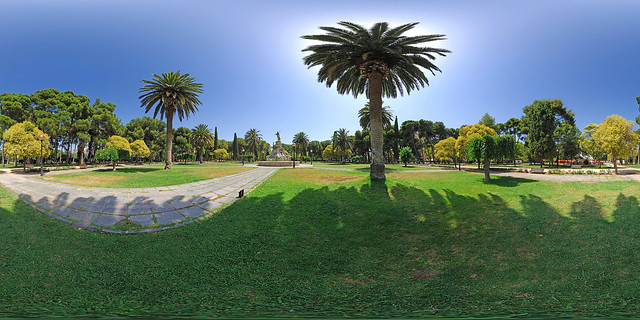Many people think horticulture is hard to accomplish, but that is not true if you know what you are doing. You can become an expert gardener quickly if you have access to good information. This article will introduce you to horticulture tips that can help you become a master gardener.
Shoveling soil that is mostly clay can be difficult because of the hardness of the soil, and because it sticks to the shovel. To make the clay soft so you aren’t working as hard, take floor or car wax and rub a light coat on the surface of the shovel using a clean cloth, then buff the surface. This will make your task easier because the clay won’t stick to the shovel. It will also keep your garden tool from rusting.
Utilize your garden tool handles as convenient makeshift rulers. It is possible to utilize tools with long handles, such as rakes, hoes and shovels, as measuring sticks. All you have to do is lay them on the floor then use a measuring tape to measure their length. Label the distances on the handle with a marker pen that will not smear or fade away. When the need arises to measure something while in your garden, the measuring tool you need will literally be “on hand,” sketched into the handles of your tools.
Slug-proof your garden with smart perennial choices. Slugs or snails can kill a plant very quickly. These pests are especially attracted to tender sprouts and to delicate, soft leaves. Some perennials are not preferred meals for snails and slugs, especially if their foliage is hairy and tough, or tastes bad. Consider planting these varieties of perennials to discourage slugs and snails from eating your flowers. Euphorbia and achillea are examples of slug-proof perennials.
Baking Soda
Don’t bother with expensive chemicals if your plants start to sport powdery mildew. Combine a bit of liquid soap and some baking soda with water. Then, spray this mixture onto all of your infected plants once each week till the mildew is gone. The baking soda is harmless to your plants and a very effective remedy.
Climbing plants and vines are great for covering fences and wall structures. These types of plants can climb anything, which makes them perfect for covering up a wall or fence that needs to be hidden. They may also grow through tress and shrubs that are already grown, or you can train them to cover your arbor. Some of these plants must have support, and some can attach themselves to something using their stems and tendrils. Honeysuckle and jasmine are very beautiful varieties of such climbers.
In the cold winter months, you can salvage certain plants by bringing them into the house. It’s a good idea to save any expensive plants or those that will thrive in indoor heat. Dig the plant up without damaging the roots and place it a big enough pot.
Tempt your cat away from the plants he has been bothering by planting catnip or wheat grass near them. You could also repel your pet by planting rosemary or placing citrus fruit peels around your garden.
When you are mowing your lawn do not cut it too closely to the dirt. Higher grass has deeper roots, meaning a healthier lawn that will be less likely to dry out. Short grass is more prone to getting dried out and turning brown.
If you are growing vegetables in your garden, it is important that you have them in a spot where they can get at least six hours of sun a day. Most vegetables need that much sun to grow rapidly and successfully. Some flowers have the same requirement for growth.
Coffee Grounds
Consider adding coffee grounds to your soil if it contains high levels of alkaline. The coffee grounds are a very inexpensive way to add acid back into the dirt. You will notice that your vegetables and greens will have a stronger taste.
Pest control is tough when you have a veggie garden. It’s likely you don’t want to spray pesticides around the vegetables you intend to eat. One way to control horticulture pests is to be vigilant. Taking the pests off of the plants by hand is one of the best fixes if you are able to catch the infestation in its early stages.
As was mentioned previously, all you really need is a bit of understanding the basics to see that horticulture is not as hard as it seems. With these tips, and enough practice, you too can craft a beautiful and enjoyable garden.
The post Make The Most Of Your Garden With The Following Tips appeared first on Living Green Gardening.
